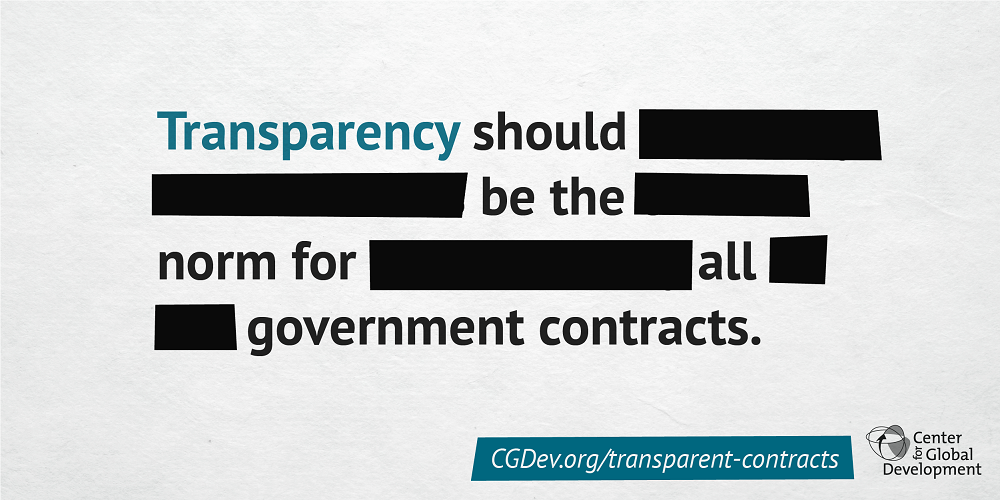Last month, the board of the Extractive Industries Transparency Initiative agreed that implementing countries will be required to disclose all contracts and licenses on oil, gas, and mining operations that are granted, entered into, or amended starting January 1, 2021. This move follows more than a decade of work by civil society organizations including Publish What You Pay and Oxfam, and growing support from firms and industry groups including Total and The International Council of Mining and Metals.
ResourceContracts.org lists over 2,000 publicly available investment contracts for oil, gas, and mining projects, more than half of which were signed since 2008. That’s a sign of a growing trend towards publication, one which the IMF now describes as an international norm. Again, data from the Natural Resource Governance Institute points to 41 policy shifts amongst EITI member countries to greater contract transparency in extractives, the considerable majority including complete contract publication. Two shifts happened in the 1980s, two in the 1990s, eight in the 2000s, and then 29 since 2010.
The shift toward total contract transparency has occurred outside of extractives as well, with some countries publishing the full text of the considerable majority of all government contracts—including the Ukraine, where EITI met last month. There are millions more government contracts worldwide that could be published in their entirety.
Even in proactive-publication regimes it can be legitimate for some information in contracts to be redacted for reasons including privacy, national security, and commercial sensitivity. A key problem is that while principles around personal privacy redactions are increasingly well articulated, there are often no clear principles and standards regarding commercial sensitivity. All too often the standard applied under freedom of information regulations amounts to “if a contract party says it should be kept confidential on the grounds of commercial sensitivity, it will be kept confidential.” And that’s where the CGD Working Group on Commercial Transparency came in. It brought together experts from government, the private sector, and civil society to come up with principles on what to do when faced with potentially commercially sensitive information in contracts. And we tested ideas that the Working Group developed through rounds of public consultation last fall.
Please join us next Thursday, March 14 at CGD’s DC office as we launch the Principles at a session with Caroline Anstey, Chair of the Group and a long-time advocate for transparency in organizations including the World Bank and the Open Society Foundation, and Nathaniel Heller of Results for Development. At their heart is the idea that redaction on the grounds of commercial sensitivity should only occur if it is in the public interest.
The 10 principles fall into three sets:
-
Transparency by design: Transparency should be the norm for all government contracts, particularly regarding information on what is being exchanged and for what price. Contracting systems should be designed to support proactive publication of contracts as open data.
-
Exceptions in the public interest: Redactions on the basis of commercial sensitivity should only be justified where the public interest in withholding information is greater than the public interest in having that information published. The assessment should take into account both any commercial harm to the contractor and the broader benefits of transparency to markets and public trust.
-
A clear and robust process: Governments should issue detailed guidance on commercial sensitivity principles and exemptions, put in place systems to support publication, ensure that redaction is time-limited, and use other oversight mechanisms to compensate for information withheld from publication.
You can find the principles here and as well as our report which lays out the ideas behind the principles and provides more information on the Working Group. We plan to spend time this year talking about the principles with both private sector and government groups with the hope of building on the consensus we achieved within the Working Group, so that other sectors can follow the lead of oil, gas, and mining towards greater transparency in contracts.
CGD blog posts reflect the views of the authors, drawing on prior research and experience in their areas of expertise.
CGD is a nonpartisan, independent organization and does not take institutional positions.






